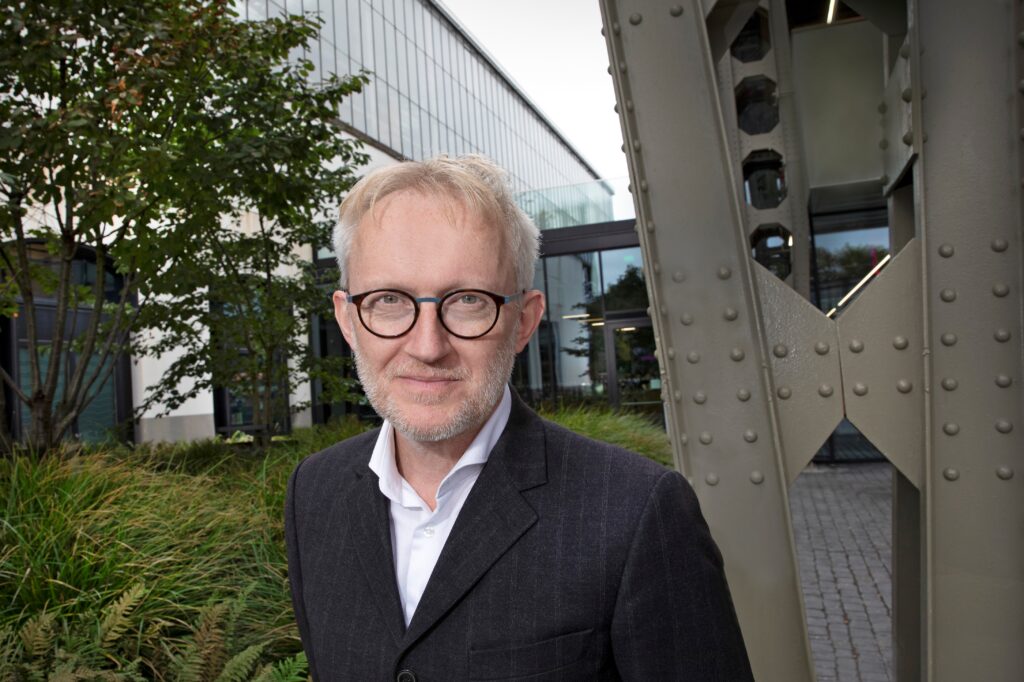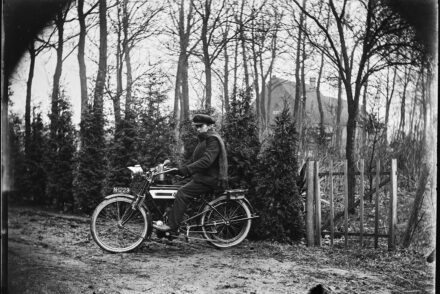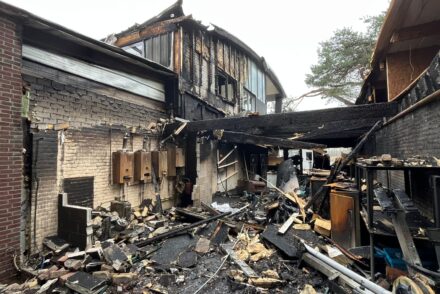David Van Reybrouck: ‘We have taken our democracy for granted — and neglected it’
On the eve of the Dutch general elections, writer and Thinker of the Netherlands David Van Reybrouck voices his concerns about the state of democracy. ‘I foresee major social unrest, ungovernability, and coups d’état.’

In his speech at the launch of REDES (Academic Collaborative Center for Resilient Democratic Society), David Van Reybrouck paints a bleak picture of the current state of democracy. Is it too late for democratic renewal, the Belgian wonders. Univers spoke with Van Reybrouck at MindLabs.
How is democracy faring in the Netherlands?
‘Poorly. Democracy is under siege from the outside and eroding from within. From the outside, because Russia is trying to interfere in our elections — for instance, by sending us disinformation.
‘We’ve also lost our biggest ally: after seventy-five years of Euro-American friendship, we’ve been downgraded by the Americans and are paying more for less security. And that security, mind you, must come from a country that looks less and less like a democracy and more and more like a dictatorship.
‘But even without those external threats, democracy is in trouble because we’ve refused to invest in it for the past two hundred years. We’ve let our democracy fall into neglect. We thought Europe would always be democratic. Honestly, I no longer believe that.’
Why not?
‘Because a combination of growing inequality, new technologies — especially AI — climate warming, planetary disruption, and a new geopolitics is creating a perfect storm. Democracy isn’t equipped to withstand it. I foresee major social unrest, ungovernability, uprisings, and coups.’
You’ve also expressed concern about fascism. In your lecture, you said: ‘The way we are acting now is the best way to bring fascism back.’
‘I saw figures showing that the percentage of Belgians who believe in democracy is steadily declining. Every year, we lose about two percent. That doesn’t seem like much, but over ten years you’ve lost twenty percent of your population.
‘Some people long for a strong leader, someone who can “get things done.” And I understand that, in a way — because democracy isn’t delivering as it should. People feel like they’re watching a bunch of toddlers at work.
‘If our political leaders don’t start showing moral leadership soon, I won’t be surprised if especially young men with technical or vocational training start looking elsewhere. I’ve said for years that populist voters are not fascists — but they’re becoming them.’
This Wednesday, the Dutch will vote for the third time in four years in the parliamentary elections. What does that tell us?
‘You don’t make democracy more democratic by sending people to the polls more often. It mainly shows ungovernability: for the first time in post-war European history, a government has fallen twice. First it became a caretaker government, and then it fell again. That really takes some doing.’
You just mentioned that we have neglected democracy. In what way?
‘In 1848, Thorbecke enshrined the parliamentary system in the constitution. Parliamentary democracy worked reasonably well — just look at how prosperous, safe, and educated we’ve become. Only one thing has changed since then: we’ve given more people the right to vote.
‘Once, only wealthy men could vote. Then workers, women, young people, and migrants were added. We’ve enriched democracy quantitatively, but not qualitatively. More people can vote, but just as few can speak in the Senate (75 members) or the House of Representatives (150 members).
‘And in all Western democracies, parliaments are filled with highly educated people. We call that “representative democracy.” Then we shouldn’t be surprised that practically educated citizens don’t see themselves reflected in parliament.
‘What we actually need is a second form of representation. That’s why I advocate for more citizens’ assemblies — bringing together, say, 175 randomly selected Dutch citizens to discuss the future. Give them the opportunity to learn from one another and from experts, and to come up with creative, practical solutions.
‘This form of public decision-making is called deliberative democracy. Hopefully, the Netherlands will be the first country to say: we want a permanent national citizens’ assembly. But I suspect it will happen sooner in Belgium, Ireland, or Denmark.’
In your speech, you made a remark about the threat to European democracy: ‘Building a strong defense around a weak democracy is a bad idea.’ Can you elaborate?
‘Our democracy is being threatened by Russia and the United States, among others. That’s why we want to invest in defense. But it’s no longer just about military defense — it’s also about digital defense, such as cyber warfare and cybersecurity.
‘It’s dangerous to think the problem only comes from outside. We don’t realize that Thorbecke’s house is already rotting from within. A strong defense around a weak democracy is therefore a bad solution.
‘Because then Europe will repeat on a continental scale what Israel experiences on a national scale: defending your democracy so zealously with military means that you end up destroying it.
‘I don’t want Europe to go down that path — to build a massive defensive structure while giving free rein to the further erosion or autocratization of European democracy.’
How can we re-engage people who distrust politics in the democratic process?
‘Engagement is essential. Again, letting people vote isn’t enough. What I’ve seen is that citizens who take part in deliberative assemblies change, often quickly — from angry voters into responsible citizens. Why? Because for the first time they feel taken seriously, and they are.
‘You can be annoyed that some people find conspiracy theories, fake news, and other utterly absurd ideas so appealing. But that’s a symptom, not a cause.
‘If you only look at the symptoms, you may miss the deeper issue — that people are deeply disappointed in the democratic system. Believing in lies can be a form of protest and resistancance.’
Yet you also sound hopeful about the future of democracy.
‘Yes, because all the good solutions already exist — we just need to realize them. When it comes to democracy, I’m mainly hopeful for the 22nd century. In the 21st, I fear we still have a few tough decades ahead. It may not be about hope or despair, but about something else: determination. And that’s what I try to contribute to.’
David Van Reybrouck (Bruges, 1971) is a writer, cultural historian, and archaeologist. He is the author of Congo (2010), Against Elections (2013), and Revolusi (2020). His essays appear worldwide in newspapers and opinion journals. Since April 2025, Van Reybrouck has been Thinker of the Netherlands.







